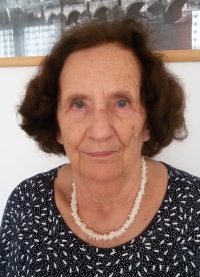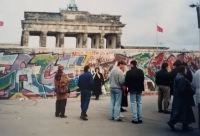She wrote down the words of those who made history

Download image
Eva Milada Julie Jaklová, née Vallová, was born on 9 August 1939 in Prague. Her parents came from the Sudeten region, from Opava. Her mother Hedvika, née Cahelová, was of German nationality, her father Bohumil Valla was Czech. She has a younger sister Jana. She grew up in Vysočany, Prague, where the family was caught in a bombing raid in 1945, from which they fled to the nearby Balkán hill. After the war, part of her German family on her mother’s side was displaced from the Sudetenland to Germany. Between 1953 and 1957 she graduated from the school of economics in Dušní street, from where she then joined the District National Committee for Prague 15 (now Prague 4). In 1963 she visited West Germany for the first time, where she was invited to a wedding by her cousin. Upon her return, she was interrogated by State Security (StB). In 1965 she married and then gave birth to two children in 1966 and 1971. In 1967, as a stenographer, she attended the Fourth Congress of the Union of Czechoslovak Writers, where she and a team of stenographers recorded the speeches of all the speakers, including Ludvík Vaculík and Václav Havel, as well as the communist official Hendrych. From the second half of the 1960s she worked first as an external editorial stenographer at Svobodné slovo, and from 1984 as an employee of the newspaper. Around 9 November 1989, she and a friend managed to get permission to travel to Berlin, where she witnessed the fall of the Berlin Wall. She spent November 1989 on the balcony of the Melantrich, where she worked as a stenographer and wrote down the speeches of the speakers to the demonstrators gathered in Wenceslas Square. She was still working as a stenographer when the interview was filmed in 2021.






